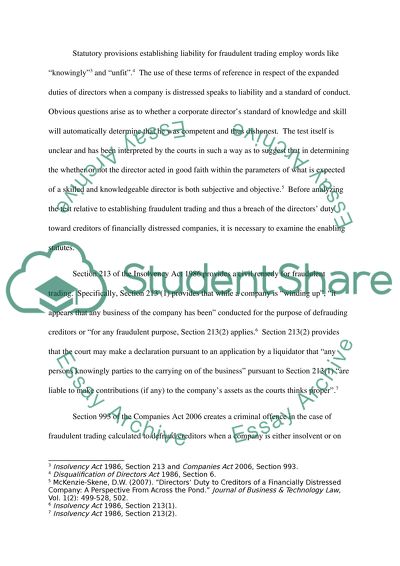Cite this document
(“Insolvency Law: Wrongful and Fraudulent Trading Essay”, n.d.)
Retrieved de https://studentshare.org/law/1435982-insolvency-law-wrongful-and-fraudulent-trading
Retrieved de https://studentshare.org/law/1435982-insolvency-law-wrongful-and-fraudulent-trading
(Insolvency Law: Wrongful and Fraudulent Trading Essay)
https://studentshare.org/law/1435982-insolvency-law-wrongful-and-fraudulent-trading.
https://studentshare.org/law/1435982-insolvency-law-wrongful-and-fraudulent-trading.
“Insolvency Law: Wrongful and Fraudulent Trading Essay”, n.d. https://studentshare.org/law/1435982-insolvency-law-wrongful-and-fraudulent-trading.


